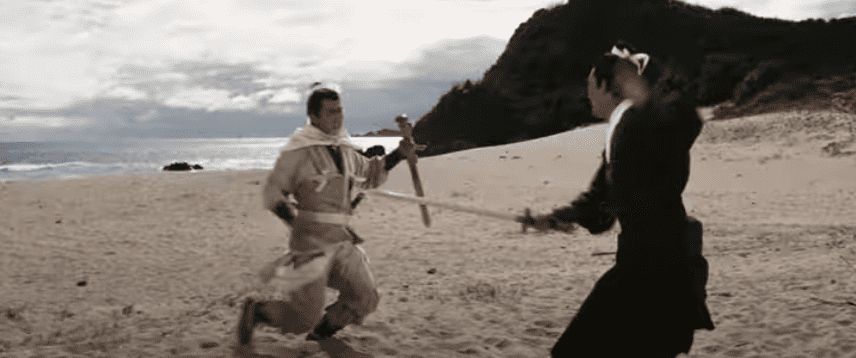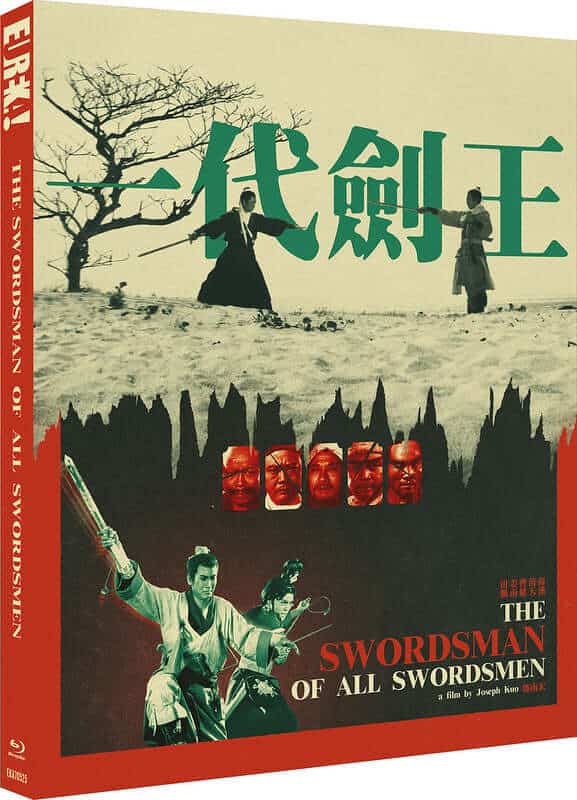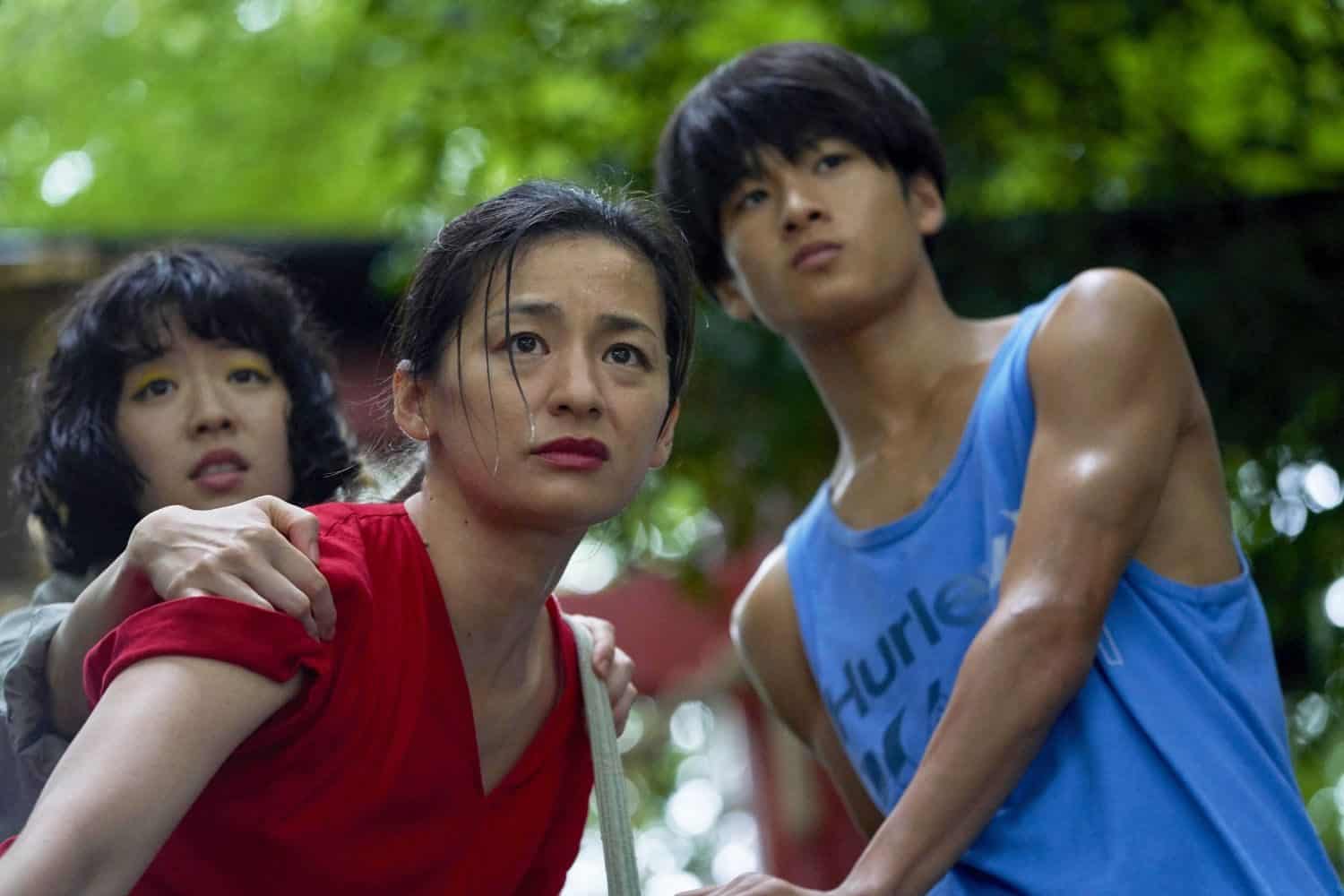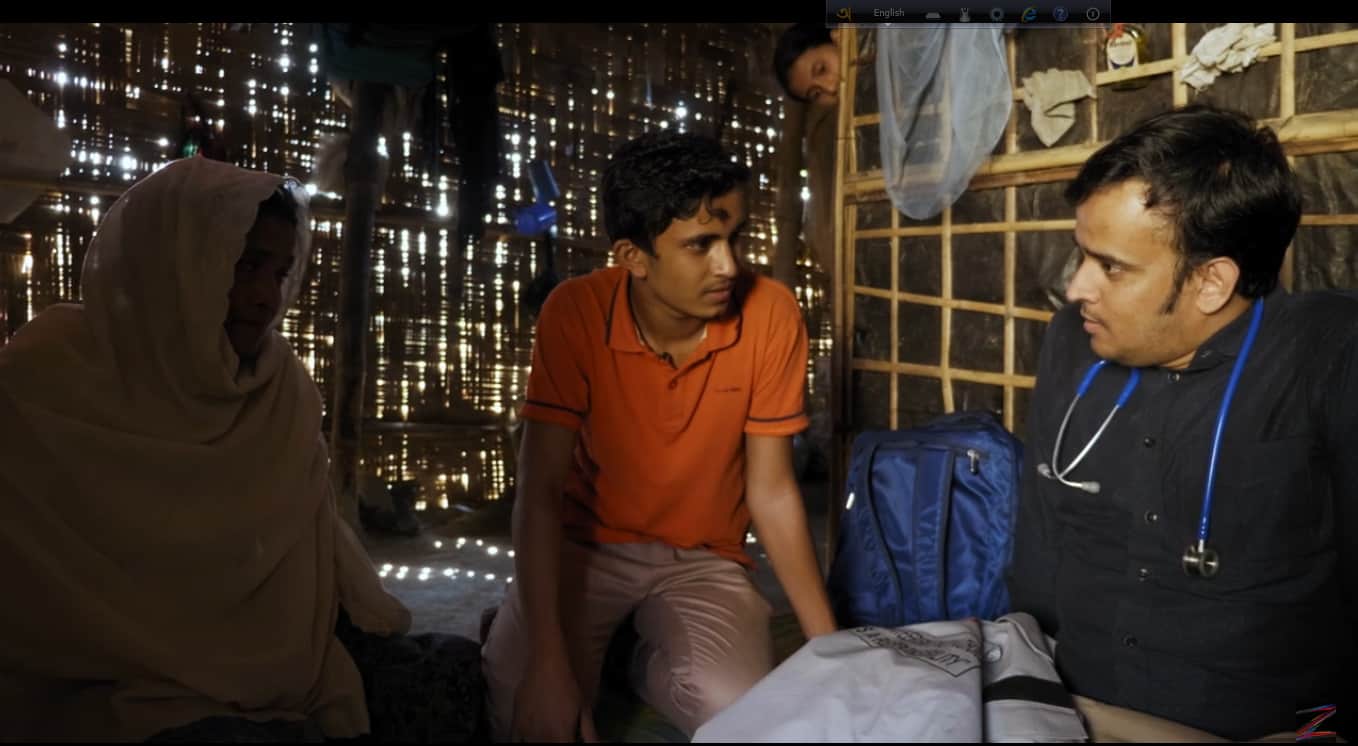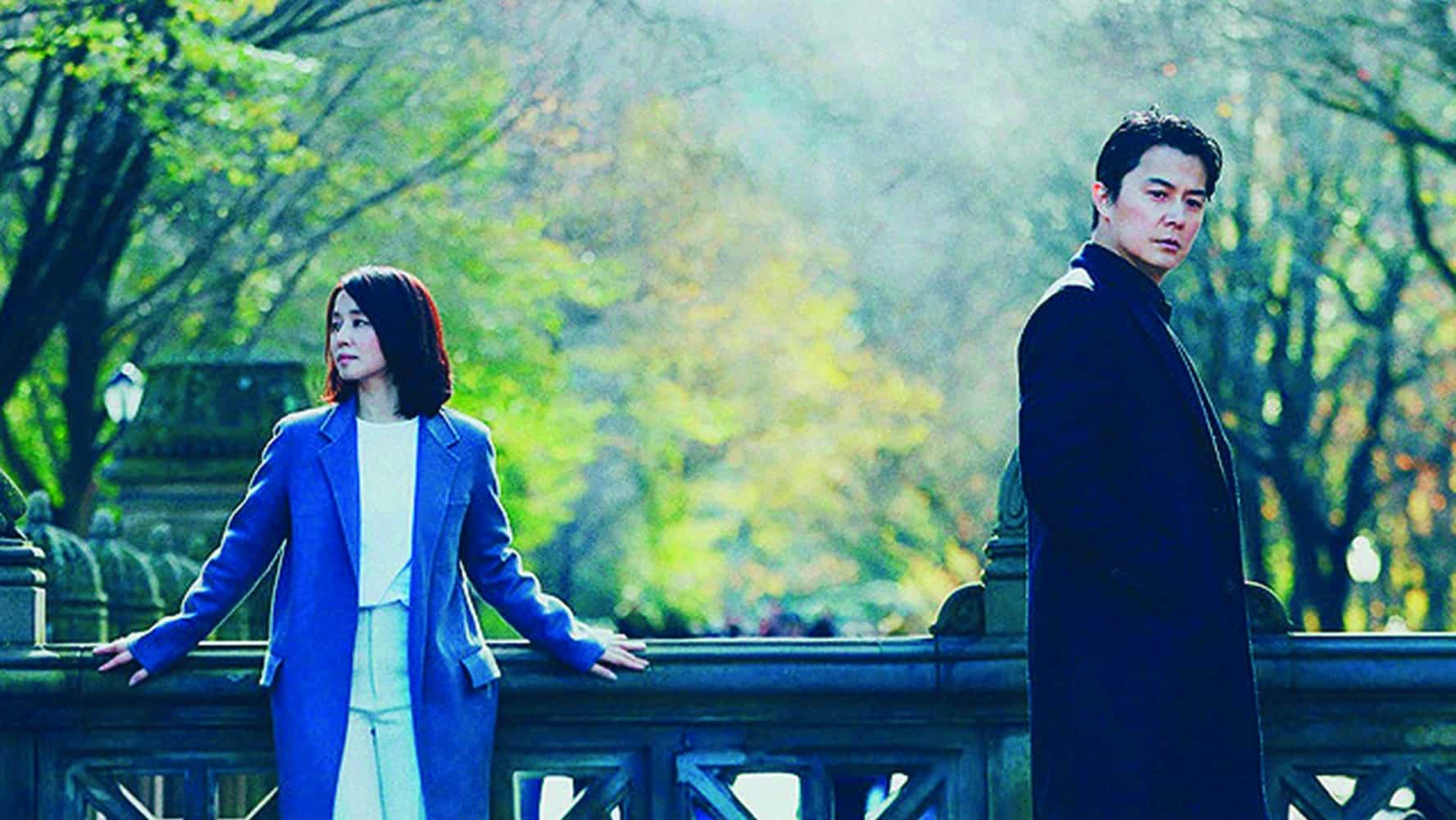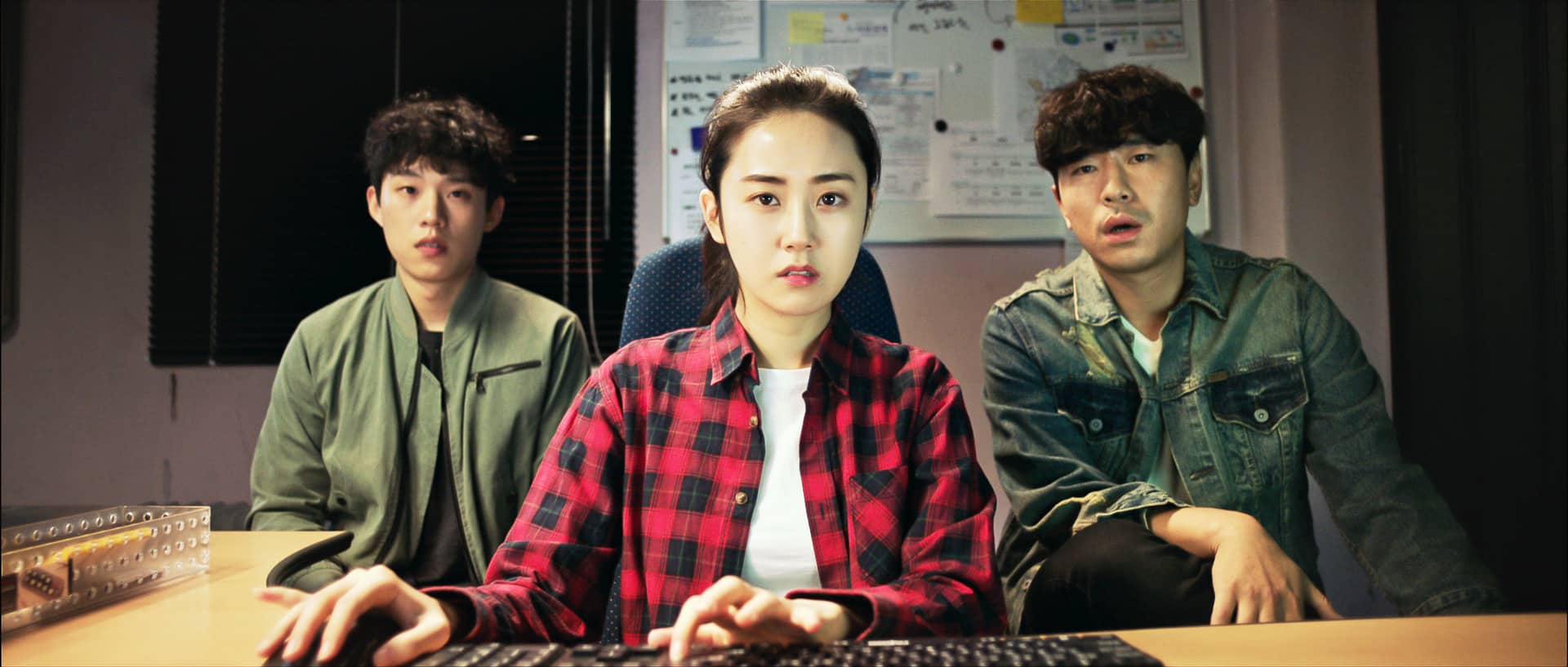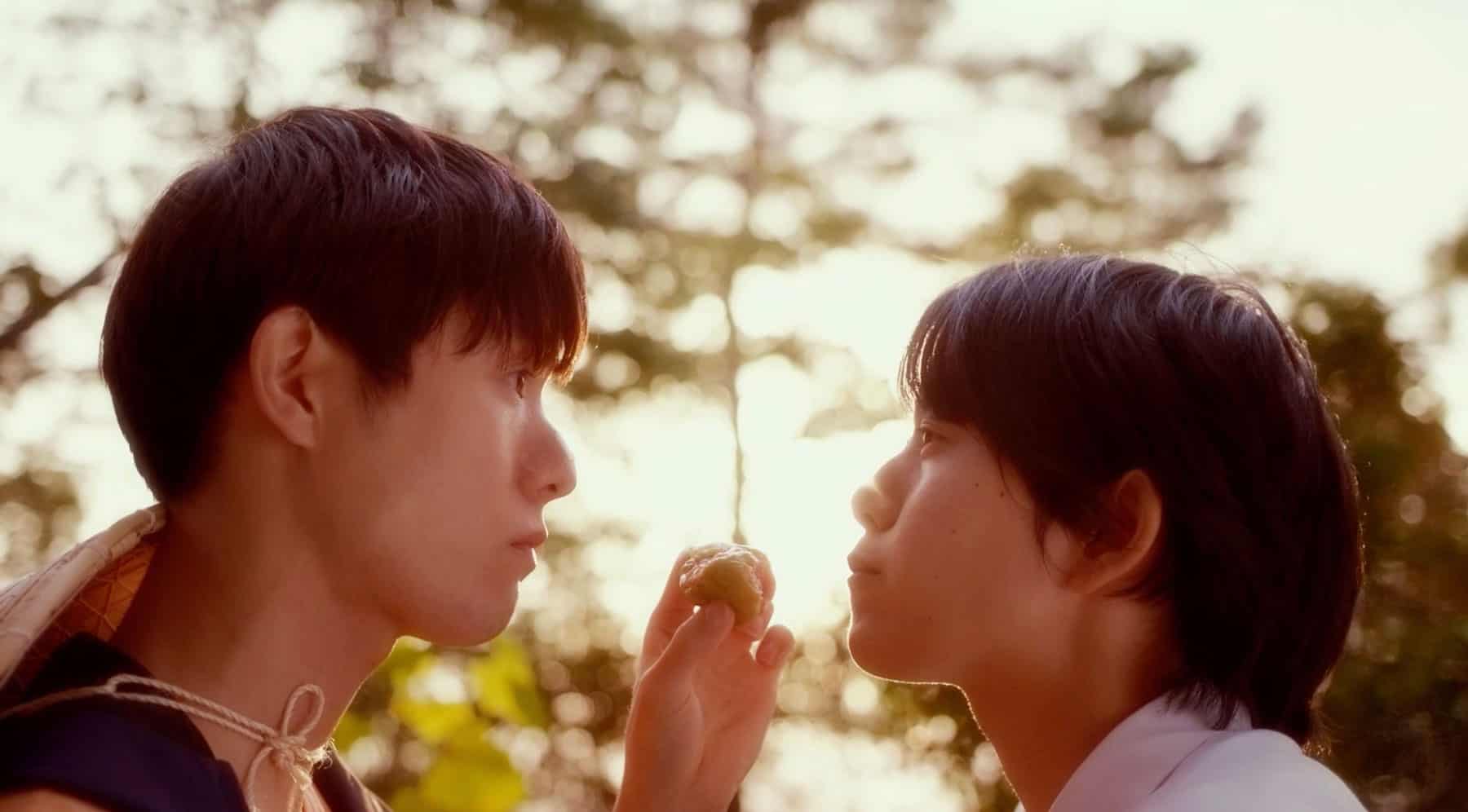Watch too many movies and chances are you can predict the outcome within the opening minutes. Wuxia can feel often feel like this and so the enjoyment comes in the journey and not always the destination, as satisfying that inevitable confrontation might be. “The Swordsman of all Swordsmen” thus comes as a surprise with a twist in the expectations that focuses on the honor and chivalry as much as the notions of revenge. It's a perfect opportunity to revisit it with Eureka Entertainment releasing a restored version onto Blu-ray.
Buy This Title
on Terracotta by clicking on the image below
As a young boy, Tsai Ying-jie (Tien Peng) witnesses the slaughter of his family by Yun Chun-chung (Tsao Tsien) and his accomplices in search or the Spirit Chasing Sword. Growing up into a swordsman in his own right, he seeks to exact revenge from those responsible. An encounter with Flying Swallow (Polly Shang-Kuan Ling-Feng) complicates matters as he learns of her identity. A mysterious ally Black Dragon (Nan Chang) only adds to the intrigue as he seeks a duel with Tsai Ying-jie once his quest is over.
Joesph Kuo is a name more remembered for his contributions to the martial arts genre with titles such as “7 Grandmasters” and “The 18 Bronzemen”. The Wuxia genre contribution is probably lesser known and hopefully this reissue will address that. A cursory glance at the cast gives King Hu vibes with most of the main cast appearing in either “A Touch of Zen” or “Dragon Gate Inn”. It's not a wholly unmerited comparison as this feature evolves into something worthy of it. Visually, it makes the most of the Taiwanese locations, separating it from the more studio bound look of its Shaw Brothers contemporaries. The finale itself is one of the most beautiful looking conclusions to a wuxia. The beach location is reminiscent of the Toshiro Mifune starring “Duel at Ganryu Island” and brings a chanbara influence with its stillness before exploding into action amidst the crashing waves.
Check also this video
Wuxia narratives can often be reduced to set archetypes and, at first glance, this is what is on show here, through ‘the warrior out for revenge for the death of his family' or ‘the ally that seeks a duel to prove who is the better swordsman', for example. Yet, as the narrative progresses, there is an increasing layer of complexity that makes for a much more dramatically satisfying piece. The central “villain” Yun Chun-Chung, by the time he reappears in the third act, is no longer what he once was. Regretful of his past actions, he has become a broken, blind individual. So, when the avenger arrives, he does not seek to defeat him in combat. His wish is that the acts of vengeance end with him. It's a plot devise rarely used in classic wuxia and adds a nice twist to the story. This is furthered with the reminder that it is he who spared Tsai Ying-jie as a child. An act that can be seen to be both an instigator of the revenge arc but also potentially redemptive. Throw in Flying Swallow's identity and the outcome of the quest becomes less straightforward. Tsai Ying-jie, for whom the desire for revenge has been the driving force, now has to contemplate his actions and consider the justification of them. Can he kill this frail man, since sparing him will dishonor his family? His breakdown is a rare moment of psychological turmoil and has real impact.
Adding to the dramatic weight of the piece is the friendship with Black Dragon. The more Black Dragon sees of his friend in action, the more he wishes to test himself against him to prove he is the better swordsman. Tsai Ying-jie is not a perfect fighter, he gets wounded and needs saving on more that one occasion and readily admits he is not at Black Dragon's level. It's a rare admission of vulnerability in a genre of self-assuredness. It's this need to prove this that leads to the impressive finale and an act of chivalry that concludes the feature with it's gratifying fade out.
The action, as to be expected from 1968, is dated somewhat but remains largely impressive. Some of the quick edits to emphasize movement are quite blatant but can be forgiven considering the film's age. For the most part, it remains grounded with occasional wuxia flourishes to highlight the skills of the combatants. The aforementioned final duel is a standout but elements such as Yun Chun-chung attempting to disguise his blindness add texture to an already impressive feature.
Tien Peng gives an excellent performance as the naive avenger torn between honor and familial duty. Polly Shang-Kuan Ling Fend who would become an excellent kung ku queen as her career progressed, has less to do as her character regresses to the background while the male dynamics kick in. Both are overshadowed, though, by a superb Tsao Tien who walks off with the acting honors as the regretful patriarch.
“The Swordsman of all Swordsmen” is an excellent feature, taking the classic template of wuxia and adding dramatic layers that will satisfy the most jaded of fans. It shows just how good Joseph Kuo could be when given the opportunity. It's a piece that could have been directed by the great King Hu himself, which is the highest compliment it could have.


